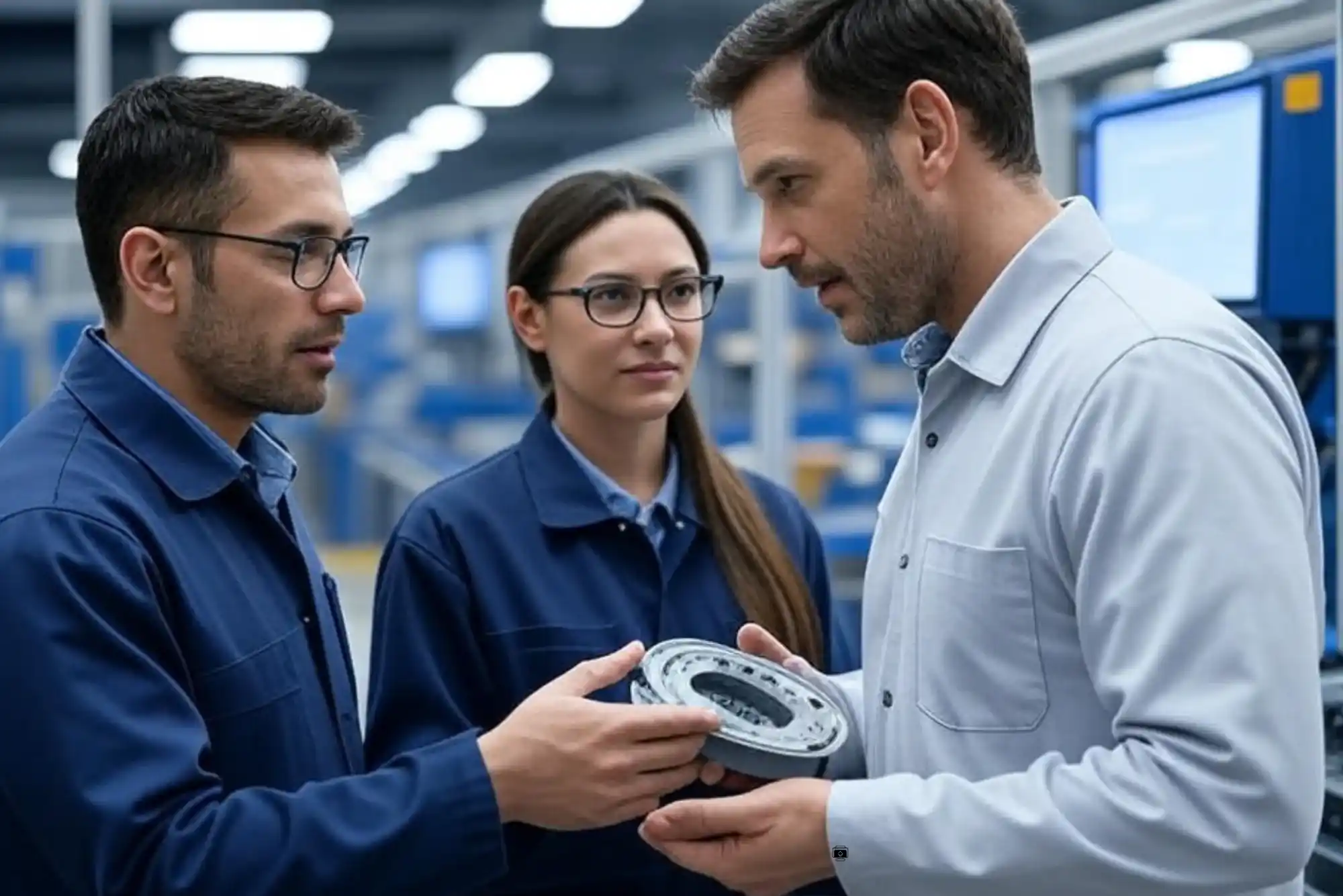Choosing the right supplier for injection molded components is one of the most critical decisions for businesses in industries ranging from automotive and medical devices to consumer electronics. The quality, consistency, and reliability of your plastic parts directly affect not only your production timelines but also the perception of your brand in the marketplace. With so many injection molding parts suppliers and plastic parts manufacturers operating globally, knowing how to identify the right partner can save you from costly mistakes and supply chain disruptions.
In this article, I’ll walk you through the essential factors you should consider based on real-world challenges, market practices, and expert insights. The goal is to help you approach supplier selection with confidence, so you get consistent quality and long-term value.
Understanding the Importance of Supplier Reliability
Injection molding is not just about producing plastic components; it’s about delivering precision, repeatability, and durability. If your supplier cuts corners on raw material selection, quality control, or tooling maintenance, the result can be catastrophic for your business. I’ve seen companies face production delays worth millions simply because they underestimated the importance of supplier reliability.
A reliable partner ensures more than timely deliveries. They act as an extension of your business, providing technical expertise, design support, and proactive communication throughout the product lifecycle. That’s why selecting a supplier should never be based solely on price—it’s about finding a long-term collaborator who can scale with your growth.
What Makes a Supplier Truly Reliable?
Reliability in injection molding suppliers comes down to three pillars: technical capability, quality assurance, and communication. While many plastic parts manufacturers will claim to provide “world-class quality,” digging deeper into their processes, certifications, and customer feedback often reveals whether they can back up those claims.
For instance, when you’re evaluating potential injection molding parts suppliers, ask yourself: do they have proven experience in your industry? A supplier producing medical device components must adhere to stricter tolerances and cleanliness standards compared to one supplying consumer goods. Understanding these nuances ensures you choose a partner that fits your industry’s exacting demands.
Evaluating Technical Capabilities
One of the first things to assess is whether the supplier has the right technical expertise and equipment. Injection molding requires precision machines, advanced tooling, and sometimes specialized processes like overmolding or insert molding. If your parts have complex geometries or require high-performance materials, you need to confirm that the supplier’s facility is equipped to handle such requirements.
It’s also valuable to ask about their tooling capabilities. Many reliable suppliers either have in-house toolrooms or strong partnerships with toolmakers. This ensures that your molds are built to last and can withstand high-volume production runs without constant adjustments.
I once worked with a client who shifted to a supplier with in-house tooling expertise, and the difference in turnaround time was remarkable. Instead of waiting weeks for tool modifications, changes were implemented within days, saving both time and money.
Quality Assurance Systems and Certifications
No matter how advanced a supplier’s machines are, without robust quality assurance systems in place, the risk of defective parts remains high. Certifications like ISO 9001, IATF 16949 (for automotive), or ISO 13485 (for medical devices) serve as strong indicators that the supplier adheres to international standards.
But don’t stop at certifications. Ask how they conduct quality checks. Do they use techniques like statistical process control (SPC), coordinate measuring machines (CMM), or in-line inspections? The presence of such systems shows a proactive approach to minimizing defects.
It’s also wise to request sample parts before signing a large contract. This not only helps you evaluate dimensional accuracy and finish but also gives you a sense of their consistency across multiple runs.
Supply Chain and Scalability Considerations
Beyond quality, the reliability of plastic parts manufacturers also hinges on their ability to deliver consistently. Supply chain resilience has become a hot topic in recent years, with global disruptions affecting everything from raw material availability to shipping timelines. A strong supplier should have contingency plans, multiple sourcing options for raw materials, and the flexibility to scale production when demand spikes.
For example, if you’re a startup scaling rapidly, your supplier should be capable of transitioning from small prototype batches to full-scale mass production without compromising lead times or quality. This scalability is often what separates a short-term vendor from a true strategic partner.
Communication and Customer Support
One often-overlooked factor when selecting injection molding parts suppliers is communication. Technical problems and supply chain issues are inevitable in manufacturing, but how quickly and transparently a supplier communicates can make all the difference.
A reliable supplier will provide regular updates, flag potential risks early, and assign a dedicated account manager or engineer to your project. From my own experience, working with suppliers who treat you as a partner rather than just another customer creates smoother collaboration and reduces misunderstandings.
Cost Versus Value
It’s tempting to choose the supplier offering the lowest quote, but this is a classic pitfall in injection molding sourcing. Low prices often mean compromises in raw material quality, tooling longevity, or labor expertise. In the long run, those “savings” can turn into higher costs due to defective parts, delays, and rework.
Instead of looking only at cost per part, consider the total value a supplier provides—technical support, design feedback, faster turnaround, and consistent quality. These intangible factors often outweigh small differences in pricing.
Visiting the Facility
If possible, visiting the supplier’s manufacturing facility can be eye-opening. A factory tour allows you to evaluate cleanliness, equipment condition, and workforce skill firsthand. You can also gauge whether the supplier’s internal culture emphasizes quality and continuous improvement. I’ve personally found that suppliers who take pride in showing their operations are usually the ones most confident about their standards.
Building Long-Term Partnerships
The most successful relationships with injection molding parts suppliers aren’t transactional—they’re partnerships built on trust, transparency, and mutual growth. Many businesses work with the same supplier for years, even decades, because of the accumulated knowledge, shared goals, and reduced friction in collaboration.
To build such partnerships, maintain open communication, pay invoices on time, and involve suppliers early in your design and development processes. When suppliers are treated as stakeholders in your success, they’re more likely to go the extra mile for you.
Red Flags to Watch Out For
While most suppliers present polished brochures and impressive websites, not all deliver on their promises. Some warning signs include a lack of certifications, reluctance to provide references, inconsistent communication, or overly vague answers about their processes. Trust your instincts—if something feels off during the evaluation process, it’s better to keep looking.
Final Thoughts
Selecting a reliable injection molding parts supplier is not a decision to be rushed. The stakes are high, as your choice impacts everything from product quality and compliance to customer satisfaction and profitability. By carefully evaluating technical capabilities, quality assurance practices, supply chain resilience, and communication standards, you can identify plastic parts manufacturers who are not just vendors but true partners in your growth.
In the end, reliability is less about flashy promises and more about proven consistency over time. Take the time to vet suppliers thoroughly, and you’ll build a foundation for smoother operations, reduced risks, and long-term success.











